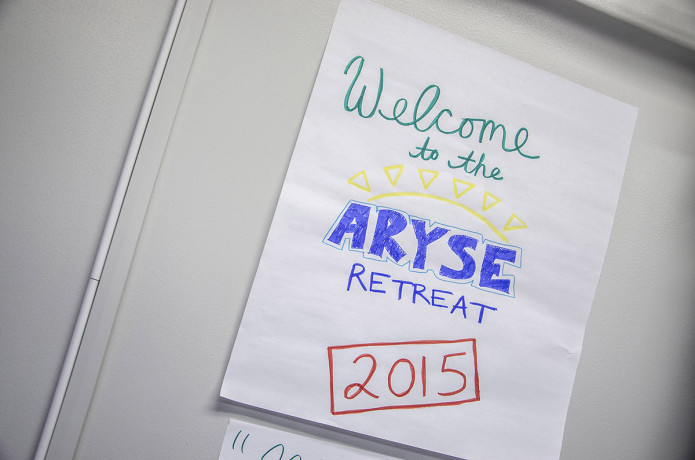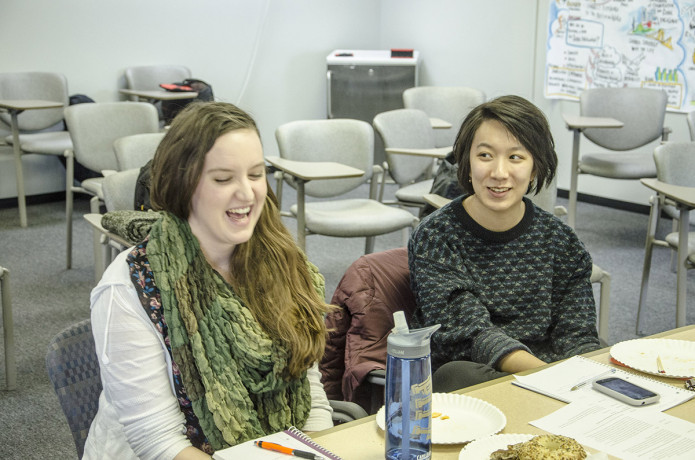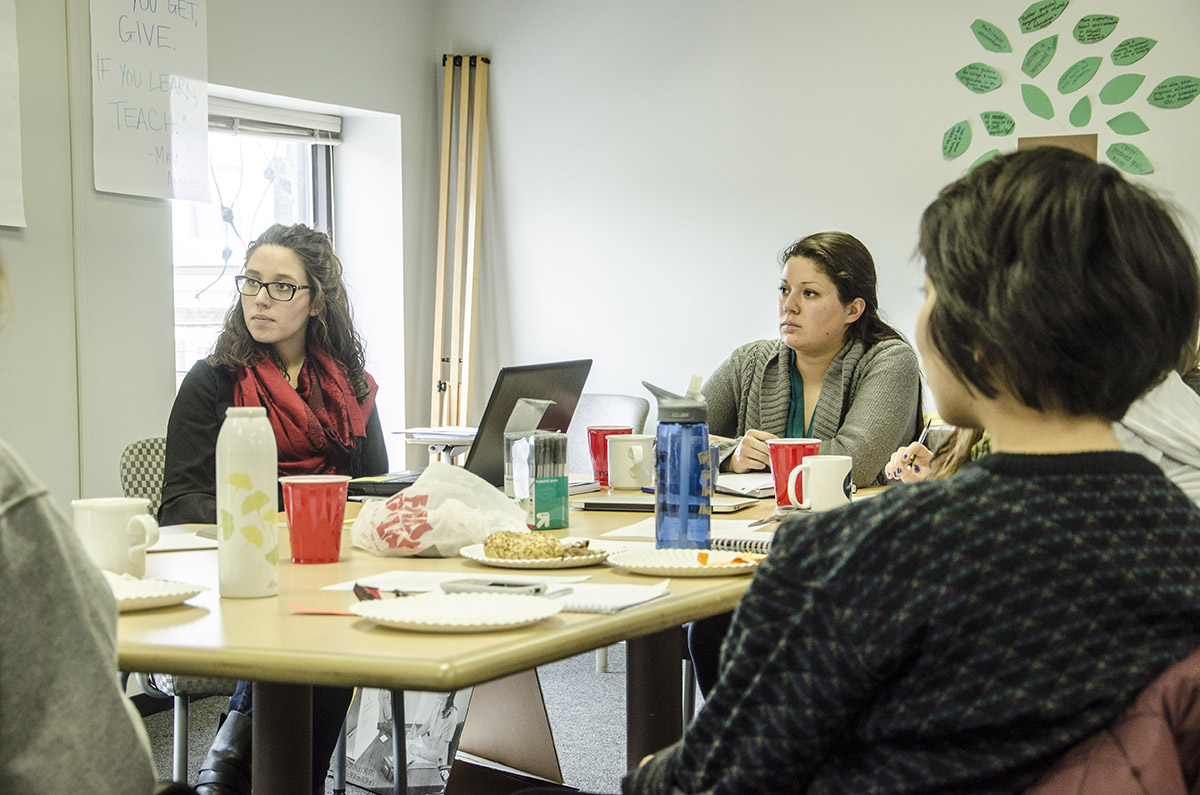When a group of recent college graduates wanted to pass along what they learned about helping immigrant and refugee children get a better education, they formed an organization call ARYSE Pittsburgh.
ARYSE, which stands for the Alliance for Refugee Youth Support and Education, describes itself as “a coalition that shares a passion for improving the educational opportunities of disenfranchised immigrant youth, and seeks to improve their efforts and services through regular interaction.”
Founded in 2012, it’s an umbrella organization providing support and resources to three college student groups (FORGE CMU, FORGE Pitt, and Keep It Real) that work with immigrant and refugee children to help with English skills, tutoring and mentoring to better prepare them for school.
Resources include tips on fundraising and grant writing, training sessions and updates on best practices to improve their effectiveness, says Jenna Baron, Executive Director of ARYSE.
ARYSE received a Community of Practice grant from The Sprout Fund to coordinate a series of activities to help members of the student groups plan for the 2015 PRYSE Summer Academy, which runs for three weeks in July and August. ARYSE also plans monthly meetings, trainings for the youth leaders & college organizations, and advocacy events “to teach Pittsburghers about the vibrant communities that sculpt the city’s global identity.”
The PRYSE Academy is like a summer camp in which participants engage in a wide range of activities, including:
– Music, art, and theater workshops
– Writing and academic workshops
– Field trips throughout Pittsburgh
– Recreational activities like soccer and basketball
– College and career preparation workshops
– A final talent show in which campers showcase their projects

“IT’S A WAY FOR US TO SUPPORT THE UNDERGRADS WHO ARE ALREADY DOING THAT INCREDIBLE WORK FOR THE CITY AS OUR CONTRIBUTION TO MAKING PITTSBURGH A PLACE FOR INTERNATIONALS AND IMMIGRANTS AND REFUGEES TO REALLY FEEL LIKE THEY’RE WELCOME”
One of the main planning events was a weekend retreat in March at The Global Switchboard. The retreat brought together many of the students from the participating campus groups to meet with members of the immigrant and refugee community to hear about their experiences and learn about ways they could better meet their needs.
They also met with a facilitator to create a planning timeline, and even spent a session with a mindfulness instructor to bring a sense of calm and focus to their busy lives. The retreat was a big success, says Baron.
“Something we were hoping to come out of the retreat was that people would feel the sense of urgency as a leader and planning PRYSE Academy, and that’s exactly what happened,” she says. “The next week we had two people really step up as co-directors, and they have since done truly an amazing job at putting things in order and following the timeline. It was nice to have that real catalyst to start moving pretty fast and making those plans.”
The work of ARYSE and its partner campus organizations really exemplifies – and thrives on – the community of practice concept of bringing together like-minded people to amplify their shared ideals, says Baron.
“It’s a way for us to support the undergrads who are already doing that incredible work for the city as our contribution to making Pittsburgh a place for internationals and immigrants and refugees to really feel like they’re welcome,” she says. “That’s why this community of practice grant is so relevant to ARYSE and how this really plays into making Pittsburgh a more global place.”
Connecting with The Global Switchboard also has been a boon to the work of groups like ARYSE, says Baron, whose own passion for assisting international newcomers, especially families with children, was sparked when she worked with a refugee family from Somalia.
“It just seems like the right place to grow the work we were already doing and get some more people behind us and supporting us,” she says. “I think every sector needs a Global Switchboard…because you lose so much when you don’t work together, and when you’re working in your own little silo, you’re not really seeing the whole picture.”



